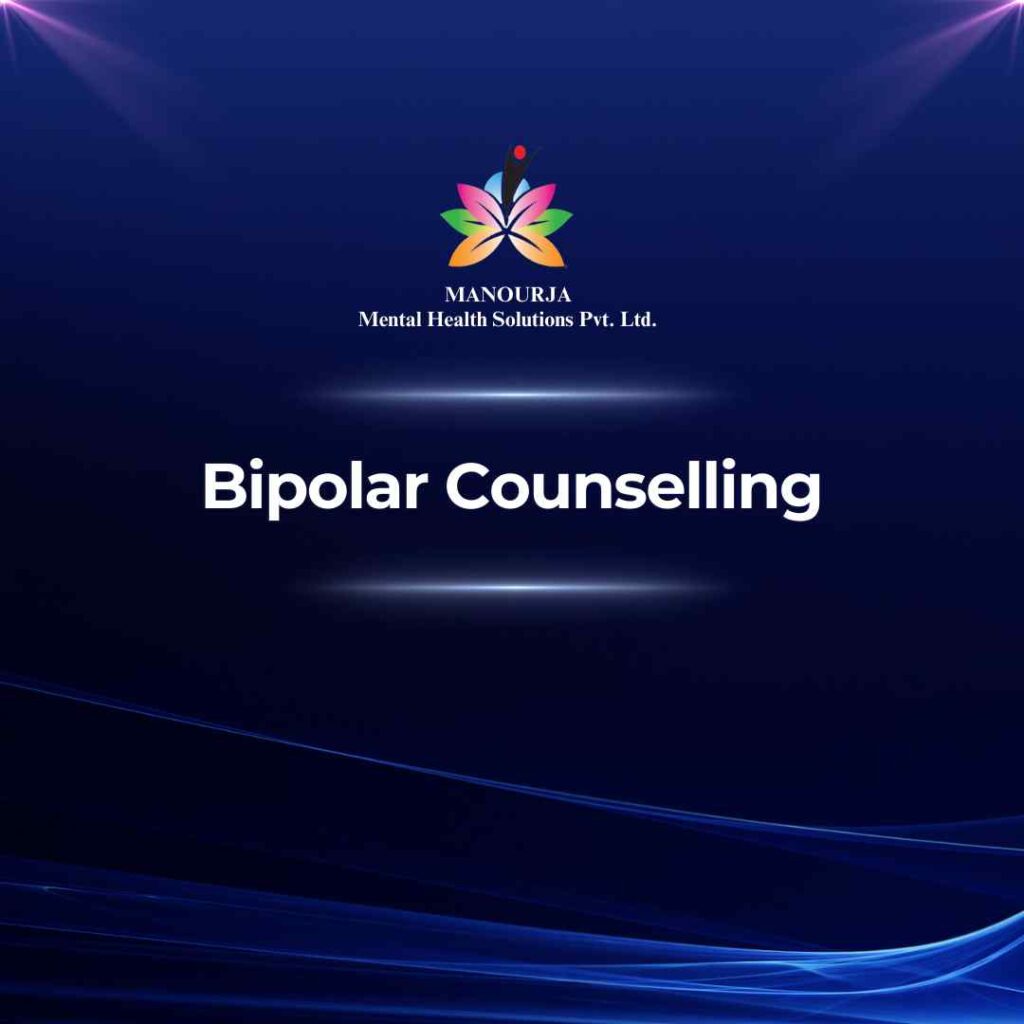Bipolar Disorder Counselling

Bipolar disorder is a mental health condition characterized by significant mood swings, including emotional highs (mania or hypomania) and lows (depression). These mood swings can affect sleep, energy levels, behavior, judgment, and the ability to think clearly. Episodes may occur rarely or multiple times a year. While most individuals will experience some emotional symptoms between episodes, some may not experience any. For those living with bipolar disorder and their families, understanding these symptoms can provide a deep sense of connection and validation:
- Manic Episodes: Include feelings of high energy, reduced need for sleep, loss of touch with reality, euphoria, and hyperactivity. They may also involve irritability, impulsive behavior, and poor decision-making.
- Depressive Episodes: Involve feelings of sadness, emptiness, hopelessness, fatigue, significant changes in appetite and sleep, loss of interest in most activities, and thoughts of death or suicide.
- Hypomanic Episodes: Similar to manic episodes but less severe and without significant impairment in social or occupational functioning.
- Cognitive Symptoms: Difficulty in concentrating and making decisions during both manic and depressive episodes.
How Counselling at MANOURJA Treats Bipolar Disorder
Counselling is crucial for effectively managing bipolar disorder and improving the lives of those affected. At MANOURJA, the treatment approach includes:
- Integrated Treatment Plans: Combining psychotherapy with medication management to address both the biological and psychological components of bipolar disorder.
- Cognitive Behavioral Therapy (CBT): Helps patients recognize and alter unhealthy thought patterns and behaviors associated with both manic and depressive phases.
- Psychoeducation: Patients and families learn about bipolar disorder, which empowers them to understand and manage the illness better.
- Family Therapy: Involves family members in therapy sessions to improve communication and address the challenges that come with bipolar disorder.
- Interpersonal and Social Rhythm Therapy (IPSRT): Focuses on stabilizing daily rhythms such as sleeping, eating, and exercising, which is crucial for managing mood swings.
Steps in MANOURJA’s Counselling Process for Bipolar Disorder
- Comprehensive Assessment: Understanding the individual’s history, symptoms, and the impact on their life.
- Collaborative Goal Setting: Working with the patient to set clear, attainable goals for both short-term relief and long-term management.
- Development of a Personalized Treatment Plan: Crafting a plan that includes suitable therapeutic methods tailored to the individual’s needs.
- Ongoing Therapy Sessions: Regular sessions that focus on CBT, family therapy, and other relevant therapies.
- Continuous Monitoring and Adjustment: Evaluating progress over time and adjusting the treatment plan to ensure optimal management of the condition.
Counselling at MANOURJA not only addresses the immediate symptoms of bipolar disorder but also provides the tools and support necessary for long-term management, offering a pathway to a more stable, fulfilling life for individuals and their families navigating this condition.
“Each sunrise brings a new page in your story of strength and renewal.”
